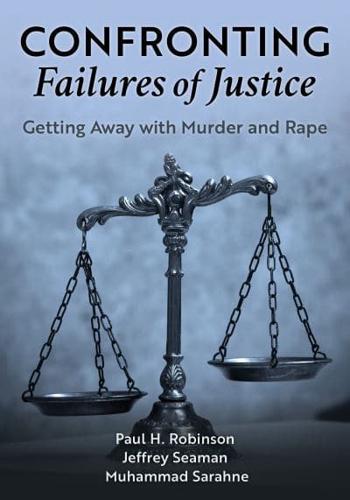Publisher's Synopsis
Most murderers and rapists escape justice. This horrifying fact has gone largely unexamined until now. In seventeen chapters, this groundbreaking book tours nearly the entire criminal justice system, examining the rules and practices that regularly produce failures of justice in serious criminal cases. Justice-frustrating rules usually exist for a reason, and each chapter outlines the interests at stake and different views on balancing them. It then describes the nature and extent of justice failures in present practice, providing numerous real-world examples of how the existing rules produce damaging results. Finally, each chapter reviews proposed and implemented reforms that could balance the competing interests in a less justice-frustrating manner and recommends one-sometimes completely original-reform to improve the system.
A systematic study of justice failures is long overdue. As this book discusses, regular failures of justice in serious criminal cases undermine deterrence and the criminal justice system's credibility with the community as a moral authority. The damage caused by unpunished crime is immense and, even worse, falls primarily on vulnerable minority communities. Now for the first time, students, researchers, policymakers, and citizens have a resource that explains why justice failures occur and what can be done about them. The book make no assumption that the reader has a background in criminal law, but it can also serve as the textbook for a course on criminal justice. There are many good books focused on the problem of injustice, when the system punishes wrongly. But there is also a desperate need to examine when and why the system fails to appropriately punish crime and what can be done to reduce such justice failures. Getting away with murder and rape is the norm in America today. This book aims to change that.










